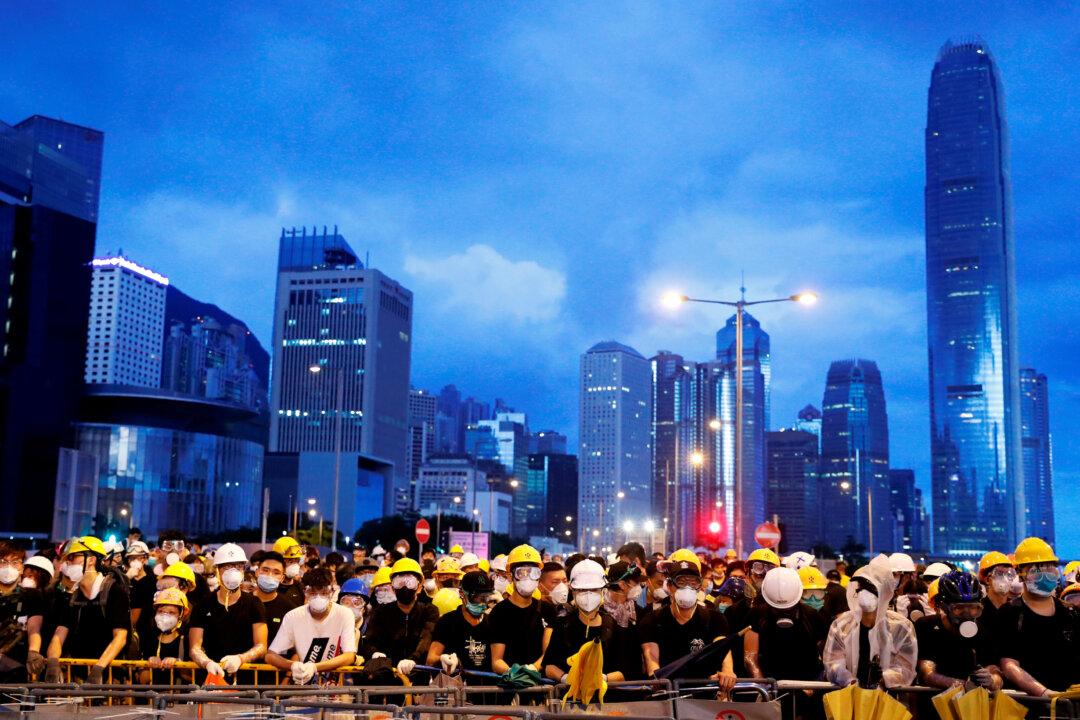LONDON/BEIJING–British Foreign Secretary Jeremy Hunt said on July 4 that he had not backed violent protests in Hong Kong, after Chinese state media ratcheted up its criticism of the U.K. for defending the autonomy of its former colony.
Hundreds of protesters broke into the Hong Kong legislature on Monday after a demonstration marking the anniversary of the return to Chinese rule in 1997 under a “one country, two systems” formula that includes freedoms not enjoyed in mainland China, including the right to protest.





